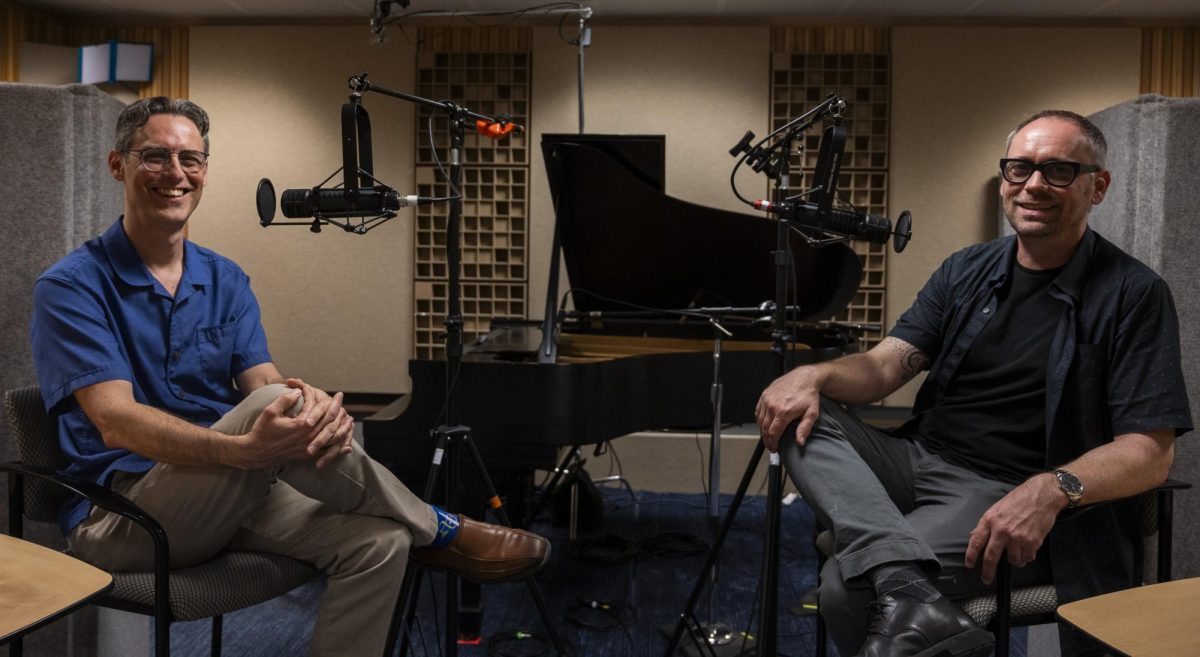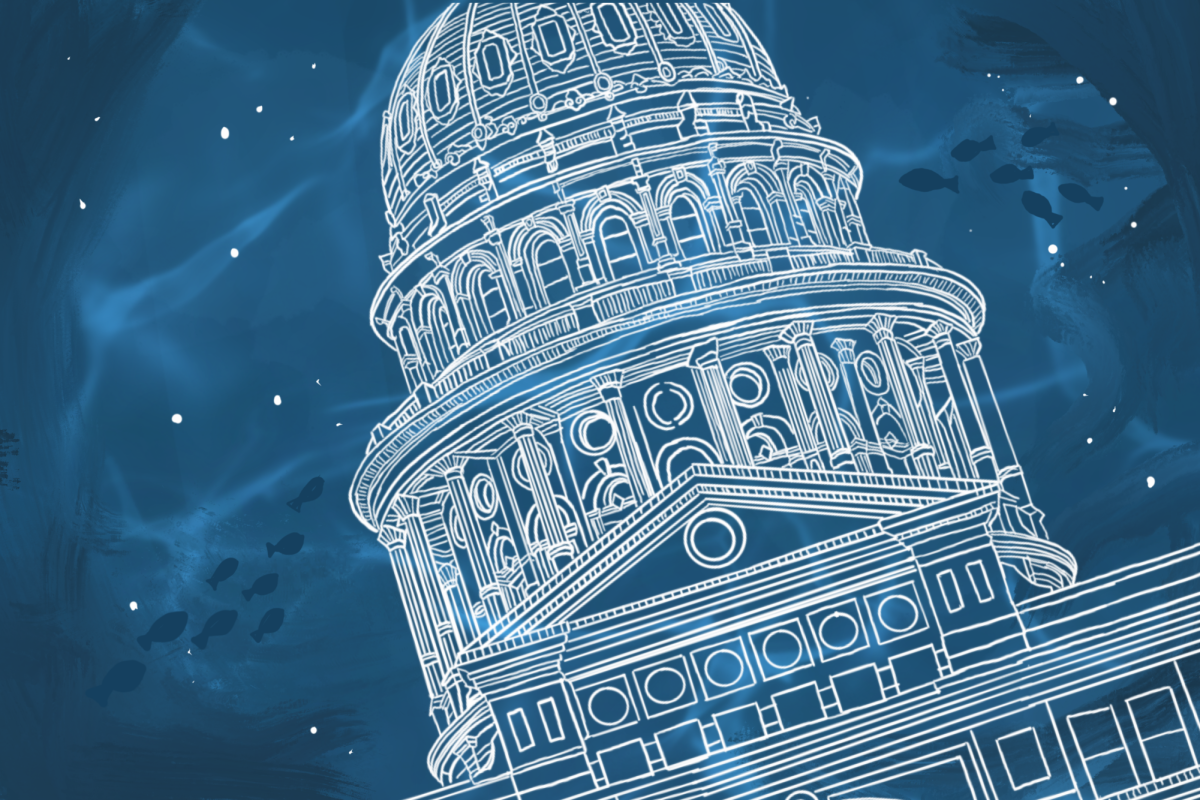The College of Liberal Arts and the College of Natural Sciences collaborated on a new podcast called “AI for the Rest of Us,” intending to bridge the gap between artificial intelligence experts and the average person. The podcast’s first episode was released on June 6th.
“AI for the Rest of Us” is a biweekly podcast that features a rotating panel of experts from every corner of the University, including guests representing business and communications perspectives, artists and law experts. The podcast aims to explore the implications of AI from as many vantage points as possible while also providing a solid baseline understanding of AI.
Casey Boyle, an associate professor of rhetoric and writing and the director of UT’s Digital Writing and Research Lab, co-hosts the podcast with Marc Airhart, a communications coordinator in the College of Natural Sciences.
“We wanted to cast a wide net so that we could really hit on things that people really care about,” Airhart said. “We have to go beyond just talking to people who are developing the tools (because AI) can impact all different aspects of life.”
After the University announced 2024 as the “Year of AI”, a committee was formed to promote AI across campus while finding ways to initiate collaboration between colleges. Airhart said committee member Daniel Oppenheimer, director of public affairs for the College of Liberal Arts, suggested the idea for the podcast format.
“It’s another way to put out there into the world that the University of Texas at Austin is not just doing interesting work about artificial intelligence in all of these realms, but also (is) interested in communicating that into the world,” Oppenheimer said.
The podcast draws inspiration from UT’s AI literacy course, which debuted fall 2023. After taking the class himself, Airhart said he viewed it as a jumping-off point for the podcast. Boyle said the short podcast episodes will make learning about AI more convenient and accessible.
“It’s important for students in particular to understand how their world is being shaped today,” Boyle said. “If they’re not already invested in or becoming experts in AI themselves, then this would be a great resource for someone to give themselves a good primer.”














